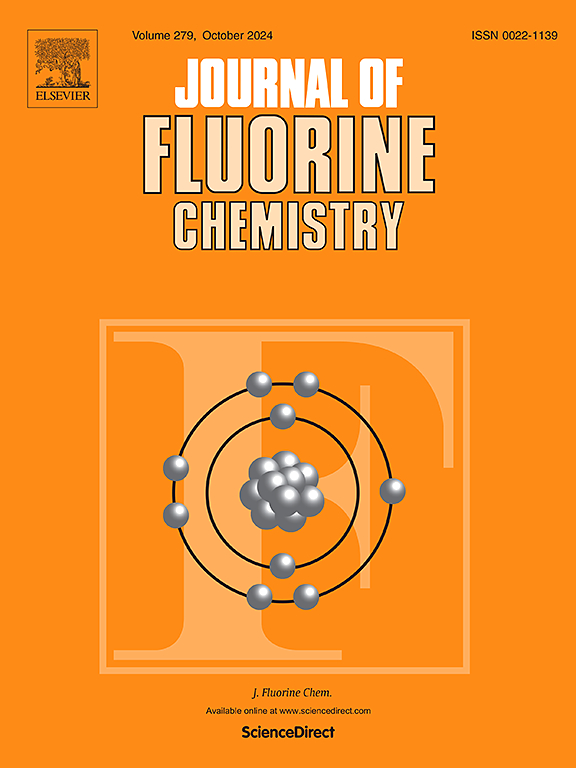异硫脲催化芳基酯生成c1 -烯醇化铵的α-氟化反应
IF 1.9
4区 化学
Q3 CHEMISTRY, INORGANIC & NUCLEAR
引用次数: 0
摘要
本文报道了异硫脲催化的缺电子芳基化合物的手性α-氟化反应。这种转化通过原位形成手性c1 -烯醇酸铵进行,然后进行具有高水平对映选择性的α-氟化,随后加入醇,如甲醇,得到最终的手性α-f -酯。本文章由计算机程序翻译,如有差异,请以英文原文为准。

Enantioselective isothiourea-catalysed α-fluorination of C1-ammonium enolates generated from arylesters
We herein report the chiral isothiourea-catalyzed α-fluorination of electron-deficient arylesters. This transformation proceeds via the in situ formation of chiral C1-ammonium enolates, which then undergo the α-fluorination with high levels of enantioselectivities, followed by addition of alcohols, such as MeOH, to give the final chiral α-F-esters.
求助全文
通过发布文献求助,成功后即可免费获取论文全文。
去求助
来源期刊

Journal of Fluorine Chemistry
化学-无机化学与核化学
CiteScore
3.80
自引率
10.50%
发文量
99
审稿时长
33 days
期刊介绍:
The Journal of Fluorine Chemistry contains reviews, original papers and short communications. The journal covers all aspects of pure and applied research on the chemistry as well as on the applications of fluorine, and of compounds or materials where fluorine exercises significant effects. This can include all chemistry research areas (inorganic, organic, organometallic, macromolecular and physical chemistry) but also includes papers on biological/biochemical related aspects of Fluorine chemistry as well as medicinal, agrochemical and pharmacological research. The Journal of Fluorine Chemistry also publishes environmental and industrial papers dealing with aspects of Fluorine chemistry on energy and material sciences. Preparative and physico-chemical investigations as well as theoretical, structural and mechanistic aspects are covered. The Journal, however, does not accept work of purely routine nature.
For reviews and special issues on particular topics of fluorine chemistry or from selected symposia, please contact the Regional Editors for further details.
 求助内容:
求助内容: 应助结果提醒方式:
应助结果提醒方式:


